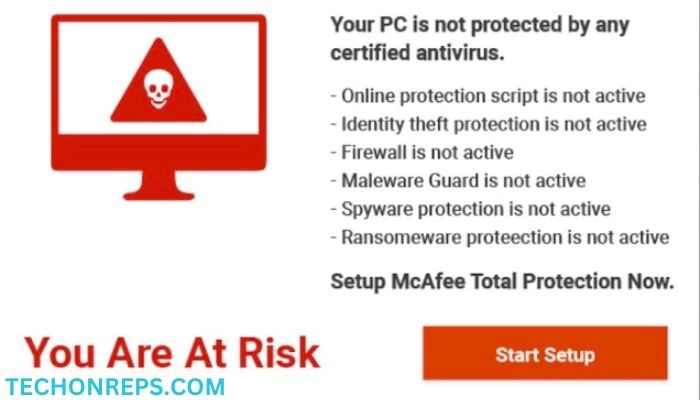Protect Your PC: Tips for Avoiding PC App Store Viruses
PC App store viruses have become a growing concern for PC users in recent years. These malicious programs can infect your computer through seemingly harmless apps downloaded from app stores, posing serious risks to your personal information and the overall security of your device. In this article, we will explore the world of PC app store viruses, understand how they infect your PC, and discuss ways to identify and avoid suspicious apps. We will also provide tips for keeping your PC safe, removing app store viruses, and protecting your personal information.

Understanding App Store Viruses
App store viruses are malicious programs that are designed to infect your PC through apps downloaded from app stores. These viruses can be disguised as legitimate apps or hidden within the code of seemingly harmless applications. Once installed on your device, they can cause a range of issues, including data theft, system crashes, and unauthorized access to your personal information.
Common types of app store viruses include adware, spyware, and ransomware. Adware is a type of virus that displays unwanted advertisements on your device, often disrupting your browsing experience. Spyware, on the other hand, is designed to secretly collect your personal information and transmit it to third parties without your consent. Ransomware is perhaps the most dangerous type of app store virus, as it encrypts your files and demands a ransom in exchange for their release.
Identifying and Avoiding Suspicious Apps
Identifying suspicious apps in the app store can be challenging, as they are often designed to look legitimate. However, there are some telltale signs that can help you spot potential threats. First, check the reviews and ratings of the app. If there are numerous negative reviews or low ratings, it may be a sign that the app is malicious or poorly designed. Additionally, be wary of apps that request excessive permissions during installation. If an app asks for access to your contacts, camera, or other sensitive information that is not necessary for its functionality, it may be a red flag.
To avoid downloading and installing suspicious apps, it is important to only download from trusted sources. Stick to reputable app stores such as Google Play Store or Apple App Store, as they have strict security measures in place to prevent the distribution of malicious apps. Avoid downloading apps from third-party websites or unofficial app stores, as they are more likely to contain viruses. Furthermore, always read the app’s description and reviews before downloading to ensure that it is legitimate and safe.
Tips for Keeping Your PC Safe
Regularly updating your antivirus software is crucial for keeping your PC safe from app store viruses. Antivirus software helps detect and remove malicious programs, and regular updates ensure that it is equipped with the latest virus definitions. Set your antivirus software to automatically update, or manually check for updates on a regular basis.
In addition to antivirus software, there are several best practices you can follow to ensure safe app store downloads and installations. First, always keep your operating system and apps up to date. Developers release updates to fix security vulnerabilities, so it is important to install these updates as soon as they become available. Second, be cautious when clicking on links or downloading files from unknown sources. These can often lead to the installation of malicious apps or viruses. Finally, use strong and unique passwords for all your accounts, and enable two-factor authentication whenever possible.
Removing App Store Viruses
If you suspect that your PC has been infected with an app store virus, it is important to take immediate action to remove it. Start by running a full scan with your antivirus software to detect and remove any malicious programs. If the antivirus software is unable to remove the virus, you may need to use specialized removal tools or seek professional help.
In some cases, app store viruses may be deeply embedded in your system and difficult to remove. In these situations, you may need to perform a system restore or reinstall your operating system. It is important to note that these methods will erase all data on your device, so it is crucial to regularly back up your files to prevent data loss.
Protecting Your Personal Information
App store viruses can pose a serious threat to your personal information, so it is important to take steps to protect it. First, be cautious when sharing personal information online. Avoid entering sensitive information such as passwords or credit card details on unsecured websites or apps. Look for the padlock symbol in the address bar, indicating that the website is secure.
Second, regularly review the permissions granted to apps on your device. Many apps request access to your personal information, such as contacts or location data, but it is important to only grant permissions that are necessary for the app’s functionality. If you no longer use an app or do not trust it, revoke its permissions or uninstall it altogether.
Finally, consider using a virtual private network (VPN) when browsing the internet or using apps. A VPN encrypts your internet connection, making it more difficult for hackers to intercept your data. It also masks your IP address, providing an additional layer of privacy and security.
Conclusion:
In conclusion, app store viruses pose a significant risk to the security of your PC and personal information. It is important to stay vigilant and take steps to protect yourself from these malicious programs. By understanding how app store viruses infect your PC, identifying and avoiding suspicious apps, regularly updating your antivirus software, and following best practices for safe app store downloads and installations, you can greatly reduce the risk of infection. In the event that your PC does become infected, it is crucial to take immediate action to remove the virus and protect your personal information. Stay safe online by staying informed and practicing good cybersecurity habits.



